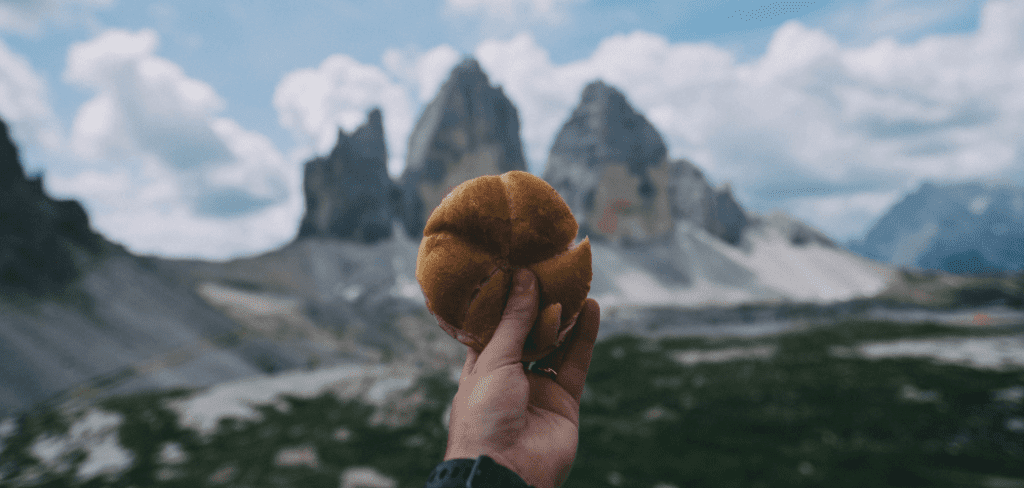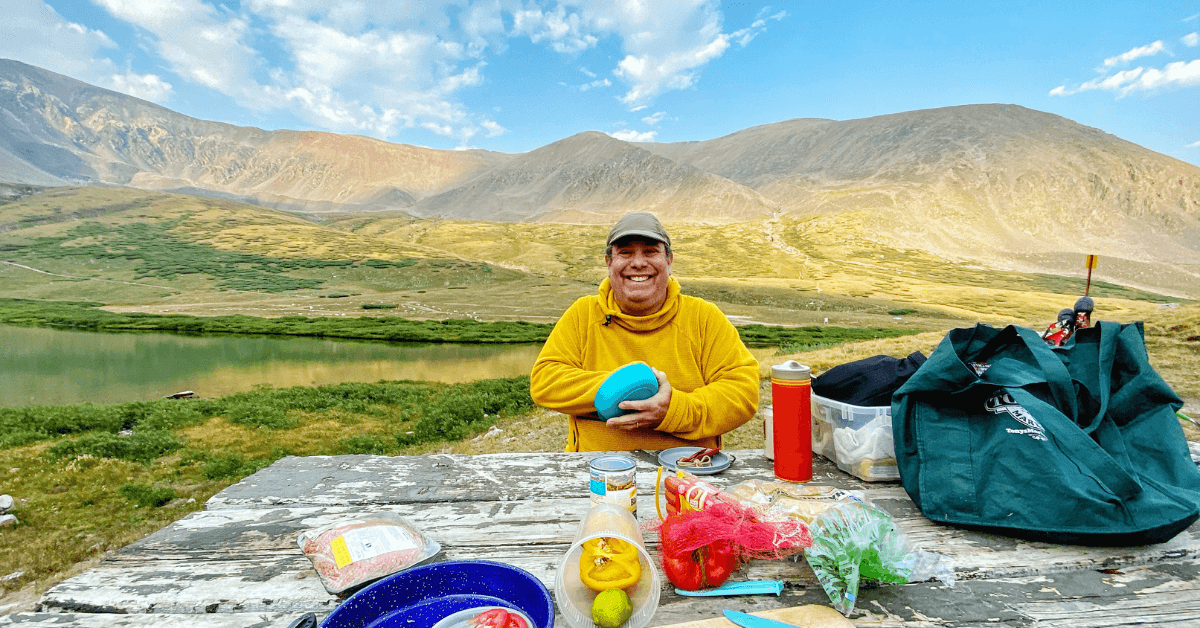Climbing a 14er is an exhilarating and challenging experience, but it’s important to remember that proper preparation starts well before setting foot on the trail. One crucial aspect of preparation is what you eat the night before your hike. The right foods can provide you with the energy and nutrients you need to tackle the strenuous climb ahead, while the wrong foods can leave you feeling sluggish and unwell.
In this article, we’ll explore the best foods to eat the night before a 14er hike to help ensure a successful and enjoyable experience. From carbohydrates for energy to protein for muscle repair, we’ll cover it all. We’ll also provide tips for properly fueling your body before and during the hike. So, if you’re planning to conquer a 14er, read on to learn how to make the most of your pre-hike meal.
What Is A 14er?
A 14er, also known as a “fourteener,” is a mountain peak with an elevation of at least 14,000 feet (4,267 meters) above sea level. These peaks are found primarily in the western United States, with the majority located in the Rocky Mountains of Colorado. There are a total of 58 14ers in Colorado, with 53 of them located in the Sawatch and Front Range mountain ranges. Other states with 14ers include California, Alaska, Wyoming, and Montana.
Climbing 14ers has become a popular recreational activity, attracting hikers and mountaineers from all over the world. Many people enjoy the challenge of climbing these peaks and the rewarding feeling of standing on top of a mountain that towers above 14,000 feet. The hikes can range from easy Class 1 hikes to strenuous Class 4 climbs, and many peaks require technical climbing skills.
What To Eat The Night Before A 14er
The night before your hike is the perfect opportunity to load up on the right nutrients to give you the energy and stamina you need for the climb ahead. In this section of the article, we’ll explore the best foods to eat the night before a 14er hike and provide tips for properly fueling your body before and during the hike.
1. Carbohydrates
Carbohydrates are the body’s main source of energy, and they are especially important for endurance activities like hiking. Eating a meal high in carbohydrates the night before a 14er hike can help ensure that your body has enough energy to tackle the strenuous climb. Some good sources of carbohydrates include pasta, rice, quinoa, sweet potatoes, and whole-grain bread. These foods are also easy to digest and will not leave you feeling heavy or sluggish the next day. Additionally, you can also add some protein to your carbs for an optimal balance.
2. Protein
Protein is essential for muscle repair and recovery. Eating a meal high in protein the night before a 14er hike can help ensure that your muscles are well-nourished and ready for the climb. Some good sources of protein include chicken, fish, tofu, tempeh, and legumes. Eating a balanced meal with both protein and carbohydrates will provide you with the energy you need to fuel your hike, as well as the muscle repair and recovery you need to recover after the hike.
3. Fiber
Fiber is an important nutrient for keeping your digestive system running smoothly. Eating foods high in fiber the night before a 14er hike can help prevent constipation and other digestive issues during the hike. Some good sources of fiber include fruits, vegetables, whole grains, and legumes.
4. Fat
Fat is an important nutrient for providing long-lasting energy. Eating foods high in healthy fats, such as olive oil, avocado, nuts, and seeds, can provide you with sustained energy throughout the hike. These fats are also important for overall health and well-being.
5. Hydration
Hydration is crucial for staying healthy and energized during a 14er hike. It’s important to drink plenty of water and other fluids the night before the hike to ensure that you’re well-hydrated before you begin. It’s also important to continue to drink fluids throughout the hike to stay hydrated.
Things You Should Avoid While On A 14er

It’s also important to note that you should avoid certain foods the night before a 14er hike. Foods that are high in fat, sugar, or spices can cause indigestion and other stomach issues. It’s best to avoid these foods and stick with simple, easy-to-digest foods.
How Much Water To Bring On A 14er
It is recommended that hikers bring at least 2-3 liters of water per person when climbing a 14er. The amount of water needed can vary depending on factors such as the length of the hike, the temperature, and the individual’s level of physical activity.
Climbing a 14er can be physically demanding and the altitude can cause dehydration. It’s important to drink water regularly and to stay hydrated throughout the hike. Two to three liters of water per person is a good starting point, but it’s important to adjust the amount based on your personal needs and the conditions of the hike.
It’s also important to note that water sources may not be available on the mountain, so it’s best to bring enough water to last the entire hike. Additionally, bringing a water filter or purification tablets can help make any water found on the trail safe to drink.
Related: What Are The Stages Of Climbing A Mountain?
What To Eat After A 14er
After a 14er hike, it’s important to replenish the nutrients and energy that your body has expended during the climb. Eating the right foods can help speed up recovery and repair the damage done to your muscles.
- Carbohydrates:
Whole grains like quinoa, brown rice, or whole wheat pasta, and root vegetables like sweet potatoes can replenish glycogen stores in the muscles and provide the energy you need after a strenuous hike.
- Protein:
Eating foods high in protein can help repair and rebuild muscle tissue. Good options include chicken, fish, tofu, tempeh, and legumes.
- Fruits and Vegetables:
Fruits and vegetables are packed with vitamins, minerals, and antioxidants which are crucial for post-hike recovery. Eating a variety of fruits and vegetables can provide your body with the nutrients it needs to heal and recover.
- Fatty Acids:
Omega-3 fatty acids found in fish and nuts can help reduce inflammation and aid in muscle recovery.
- Hydration:
It is equally important to hydrate after your hike, drinking water, and electrolyte-rich fluids can help replenish fluids lost during the hike.
And just like with what to eat the night before a 14er, you should avoid foods that are high in sugar, processed foods, or excessive amounts of caffeine after doing a 14er. Why? Well, because they can dehydrate you and slow down your recovery.
A Rundown Of Tips for Properly Fueling Your Body
- Eat a balanced meal the night before the hike. A meal that includes a combination of carbohydrates, protein, and healthy fats will provide you with the energy and nutrients you need for the hike.
- Drink plenty of water and other fluids. Staying well-hydrated is crucial for staying healthy and energized during the hike.
- Pack snacks for the hike. Bring along snacks such as fruit, nuts, and energy bars to keep your energy levels up during the hike.
- Listen to your body. If you’re feeling sluggish or unwell during the hike, take a break and eat a snack or drink some water.
- Remember to eat and drink during the hike. It’s important to continue to fuel your body with energy and fluids during the hike to ensure that you have enough energy to complete the hike.
